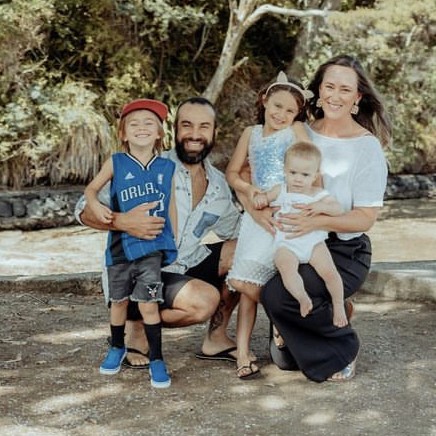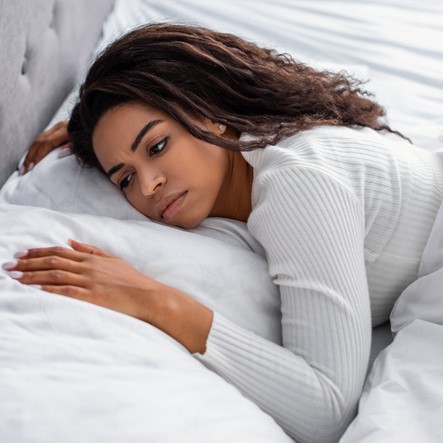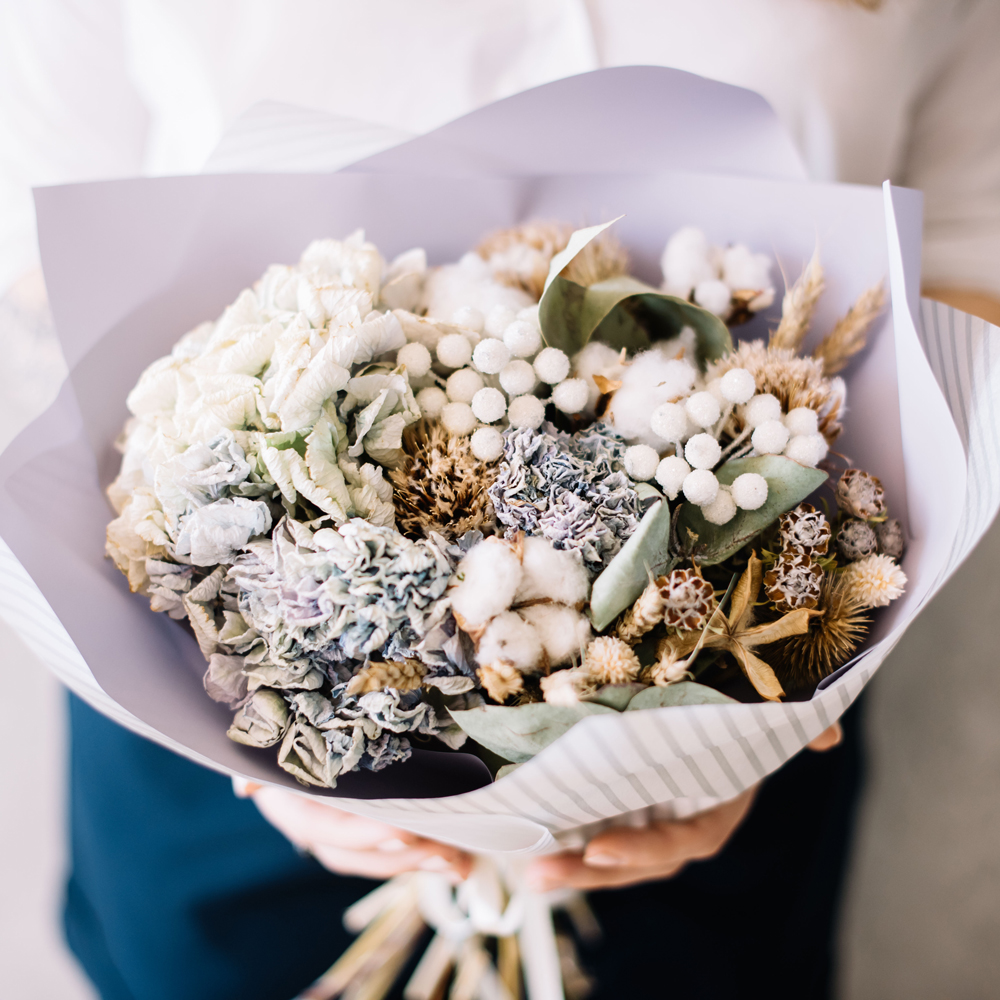Māmā Muse Interview: Nic Winslade
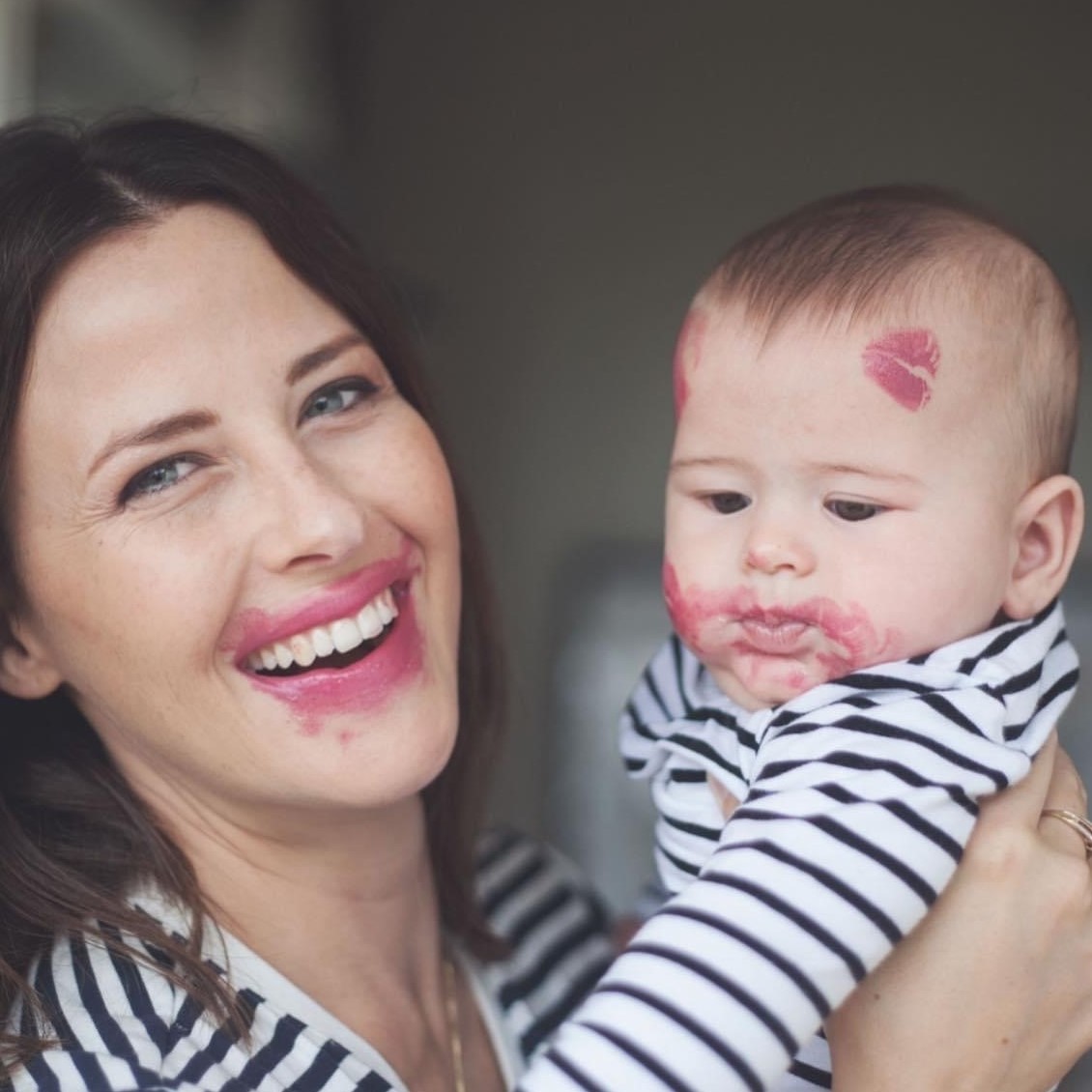
We spoke to Nic Winslade, mum-of-two and co-owner of Kept, about gentle parenting, growing up and ditching the ‘Virgin Mum’, and life with low vision.
Kia ora Nic,
Can you tell us a but about yourself, who’s in your whānau and where you live?
I’m Nic Winslade, and this question ‘Who am I?’ haha, I feel like I used to know, and then I had kids, and now I’m all things to everyone! I live with my two beautiful kids, Marlo (5) and Blair (3) with my husband Luke (30 something!) in the beautiful Mount Maunganui.
How would you describe your approach to parenting so far?
Winging it! As a social scientist / human insights, by trade – I was constantly analysing my own evolution alongside theirs, and continue to. I compare how I parent from how I was parented, and it allows me to have grace for myself and for my parents too.
So much of our experience relies on the environments and supports and systems we find ourselves in. I am so connected to my kids, love them for who they are, I celebrate their individuality, and they are uniquely different. I believe in nature over nurture, and my job is to love them, not shape them.
But in saying this, I shape them by loving them, if that makes sense. And loving myself is the most important way I can love them. So wishy-washy, but truly, kids have been a giant mirror to myself.
They trigger me! But my reactions are more an insight into myself than them. It’s a journey, and I’m here for it!
You have low vision, can you please tell us a bit about that, and how it affects your day to day, and what (if any), affect it’s had on your parenting journey?
I have a genetic condition called Stargardt’s, which was ‘there’ from birth, but didn’t actually affect me until my late twenties. It really shook me when I was diagnosed, I consider it an early identity crisis, as you could imagine, at the peak of your career, no kids, life ahead of you, and suddenly your eyes are failing you, your vision and how you see the world and move in it is changing, and losing the ability to drive and my productivity at work, and just dealing with the general grief of my future as I knew it.
I have likened it to the dramatic shift in life and identity that mothers go through also, I just did it early. So, on one hand it made my parenting journey a little easier in this sense. I had done the ‘who am I without certainty and control’.
But like all parents-to-be, I did worry if I would be ‘good enough’ for my kids. Would I be able to be a good mum if I couldn’t drive?
The early years were special. We moved cities from Auckland to Mount Maunganui, which was great as it meant we could afford to buy a house, but it was hard moving towns without being able to drive. I found it difficult to get to the social events unless it was walkable. And as an extrovert this was incredibly hard. Spending so much time stuck at home. Something we can all relate to now!
But not having the option to over-schedule my life and busy myself with activities and entertainment, meant me and my kids had a lot of slow home time together and fun adventures on foot and generally just a lot of precious home rituals that I am so grateful for now that my life is heavily scheduled, fast paced and on wheels!
You used to be ‘the Virgin Mum’ on IG. When did you decide, that no longer fit, and why?
I wanted a name that would be a little shock factor, but also a little nod to just how fresh I was and I knew (thanks to the kinds of brands I was managing insights for), that even experienced mothers felt – virgin! In the early days it was a documentation of my first-hand experience of ‘all the things’. And I’m so glad I did that, not only is it an honest time capsule of my babies’ evolution, but also my own! It obviously doesn’t fit now, because I was getting a lot of sex requests from strange men, but also because I am not a brand, I am me. So not much else to it really.
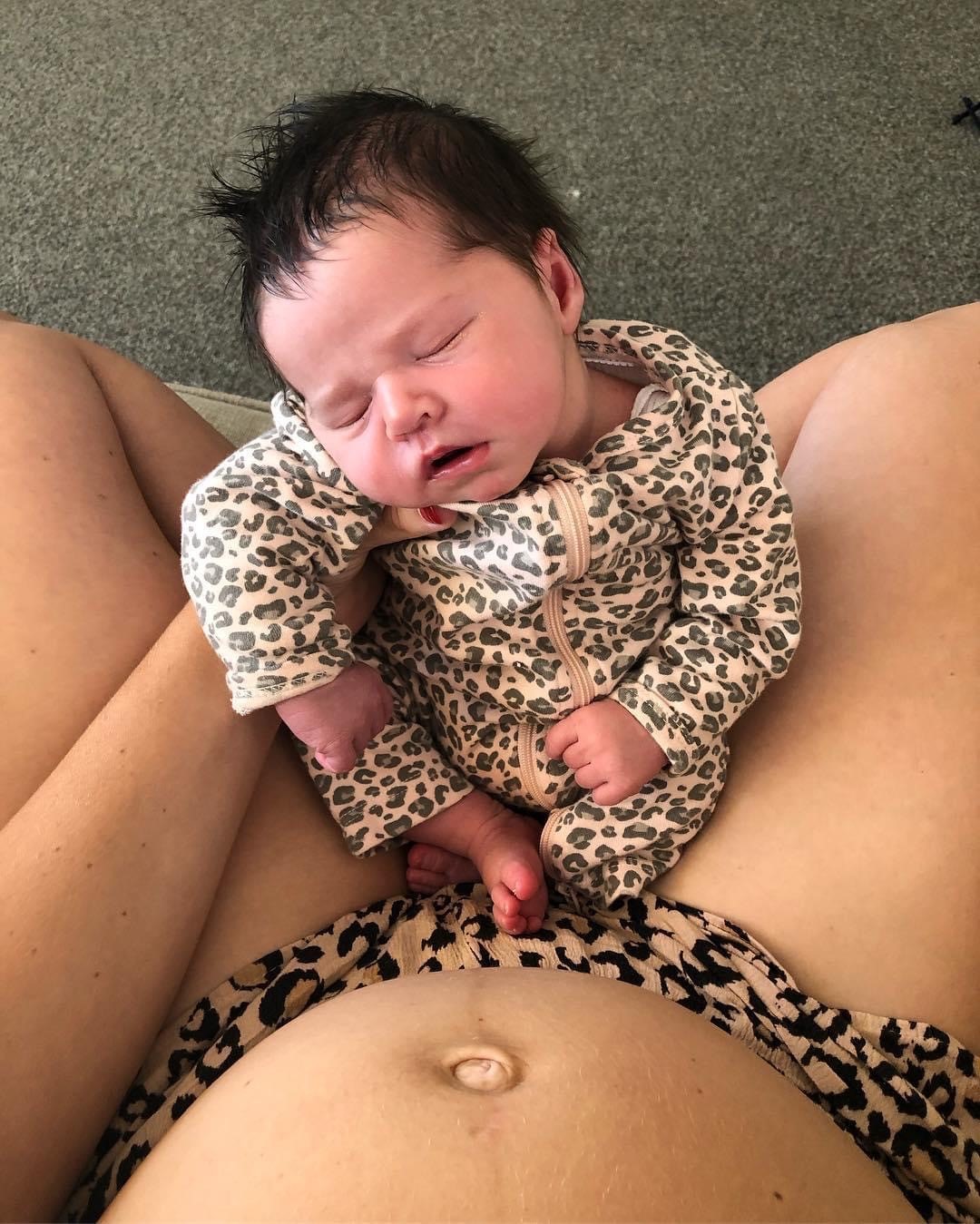
You share a bit on your IG, about miscarriage. We really love what you said about supporting someone who has had a miscarriage, and mirroring their emotions, rather than giving unsolicited advice. If you’re up for it, can you build on that a bit, and some advice with our readers on how to support a friend or whanau who may have had a miscarriage?
I think this is just human-ning 101 that we all struggle to do because not many of us were ever modelled this type of emotional availability.
But gentle parenting has taught us how to navigate pretty much anything, with anyone.
Validating basically means not providing a different perspective, not challenging the emotion, just acknowledging it, hearing it, mirroring it, and accepting it for what it is, an emotion that needs to breathe and then can leave (notice that’s a phrase I use a lot!). But I will go a step further and say that what I’ve been learning to do lately is actually let myself feel and validating my own emotions till they can pass… it’s a life changer.
I have written a lot already on my Instagram about all the ways I would invalidate my own experience of miscarriage, as well as the ways others tried to help that wasn’t helpful. So I think it’s an important practice to keep working on.
If you could tell a new māmā ANYTHING about parenting, what would it be?
It would be to gentle parent yourself! Like above, it’s all about validating your own feelings, understanding, and not always solving your emotions. Letting yourself feel whatever it is you want to feel. Unprocessed emotion builds up into a fireball of anxiety, depression, resentment, feeling of inadequacy and a general lack of emotional resilience.
I feel like emotional awareness is the only skill a parent actually needs!
Us millennial mothers struggle to know our feelings, let alone our needs, so we struggle to put boundaries in and prioritise what’s important.
How we spend our days is how we spend our life. And we model our inner world as well as our outer world to our children. They are learning and absorbing all of it. But don’t do it for them! Again, this is a life-long practice!
What has motherhood taught you about yourself?
That I am an emotional being. That we all are! But also, my capacity for loving myself and someone else.
What has been the most challenging part of motherhood, for you so far?
I would say that transition of going back to work but still having kids at home. The juggle of trying to find an income that works alongside being an attentive parent is HARD!
And again, having grace for ourselves because we don’t have the systemic support to help, we no longer have the village, and expectations and living costs are too high and society hasn’t caught up. But we also struggle to know and advocate for our needs!
What does self-care look like to you now, that you’re a māmā?
It is self-regulation, starting from just calming my body. My therapist says that majority of the communication between our body and our brain comes from our body to our brain, not the other way around. Meaning, we can calm our mind by calming our body. There’s a survival state we can often be in as parents, constant chaos! So emotional regulation is really important to me, as otherwise I’m living in my head and reacting out of a bad place, as opposed to be present and calm. But also getting a house cleaner! Learning to value my time, especially while they are young is so important.
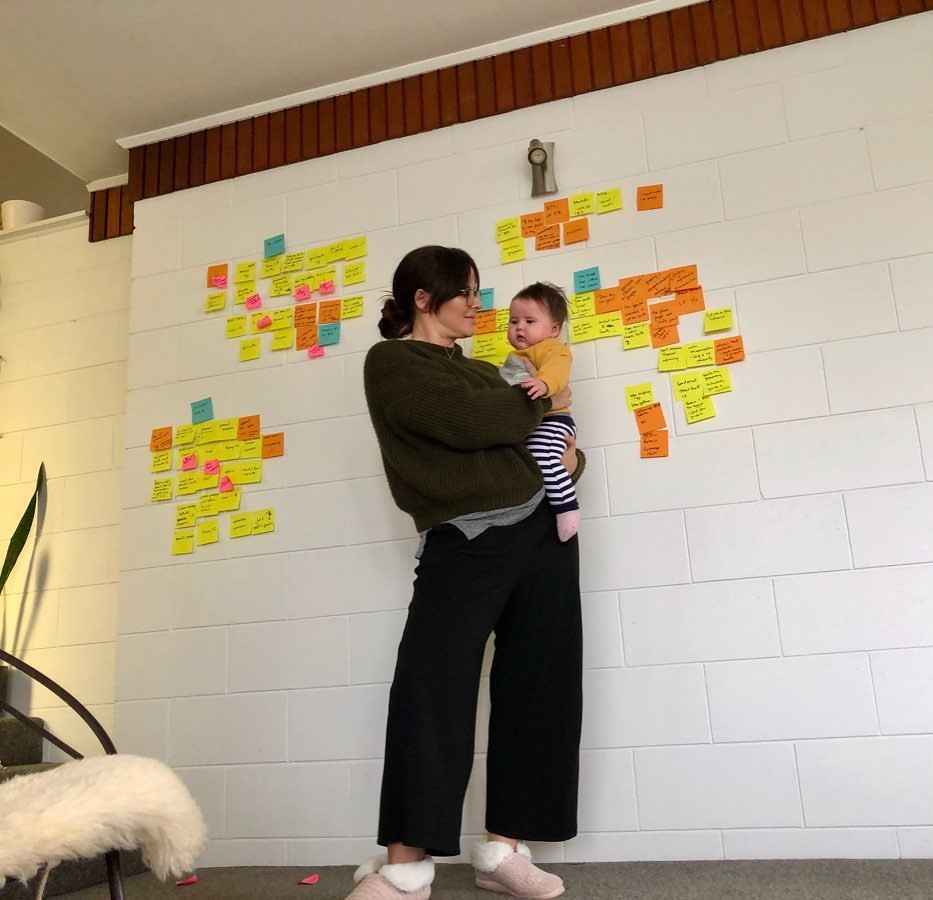
You have your own business; Kept, which is incredible by the way! What inspired you to start Kept, and how you juggle being a māmā, and a business owner?
I always wanted to do something that could help mothers in a major way. Obviously, experiencing a lot of these issues personally was feeling like I needed a village / more support but also flexible employment opportunities that were truly flexible!
So back in lockdown, I came up with Kept. The cleaner marketplace. It’s an app where you can book a house cleaner when you need one, see the different people and compare their experience and reviews, and book them really. There’s nothing else like it. It’s hard enough to find a cleaner you trust when you need one for just a pre-party clean or a catch-up clean but finding one that’s available! But also, we are supporting people into flexible self-employment. I feel so proud of it!
It’s a hard juggle, but for me and my co-founder Katie, we have ALWAYS said, and we say to all of our team, life comes first. Kids come first. Nothing is more important than family, and we have found that not only are the team more productive and loyal, but we attract some of the best minds in their fields because we are truly living this from the inside out!
How I manage this, while parenting myself… well, there’s been kids on my knee in video meetings, and I’ve even done a meeting from the sick bay at school. It’s always hilarious to me. Nothing is more important than relationships at the end of the day. More businesses need to operate in this way and should! Gen Z’s are going to demand this from employers!
Tell us about a māmā who is your muse?
I love Cecilia Robinson. She’s the co-founder of My Food Bag and many other businesses! She not only is a successful tech entrepreneur, but she’s a proud mother who celebrates her commitment to her kids. She is proof that a mother can be a successful entrepreneur without sacrificing what’s important.
Is there anything else you’d like to add?
Martyring yourself in motherhood is really easy to do. It’s sort of essential at the beginning, with pregnancy, and labour and the fourth trimester… our bodies are literally sacrificed, and our children take over all of our own needs. But from there, it’s really about prioritising yourself slowly again. Because, that is living and we deserve a life we love, but also, we want our kids to love themselves first too, and we teach by living it.
And also sorry if this sounds really preachy! I am reminding myself ALL OF THIS!
